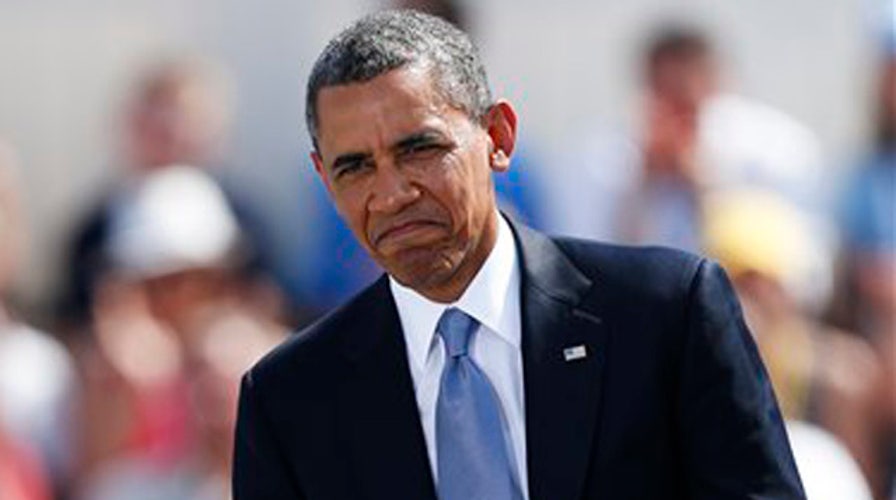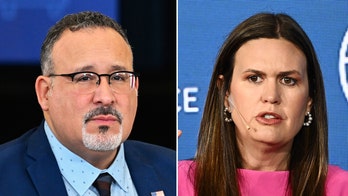Rough start in ObamaCare's future?
Report from congressional Government Accountability Office says President Obama's health care law may not launch smoothly or on time - and this will be bad for small businesses
Obama administration allies are ratcheting up their push to sell ObamaCare, with one making a seven-figure ad buy to promote the "benefits" of the overhaul while another prepares to hold dozens of events across the country.
The sales job, it turns out, may be needed more than ever.
With an October deadline fast approaching for the launch of the "exchanges" -- the newly created government-regulated insurance marketplace -- the law is running into logistical and political hurdles despite surviving last year's Supreme Court ruling.
Public opinion is just one barometer for the potential trouble ahead.
A new Fox News poll finds that voters oppose the law by a split of 55-40 percent, marking a 6-point increase in opposition from this time last year.
And a Kaiser foundation poll finds that only 19 percent of Americans think they will be better off under the new health care law.
On top of that comes a Government Accountability Office report which says implementation is behind schedule and raises doubts about whether the law can be implemented on time.
The report warned of a "potential for challenges going forward," saying "it cannot be determined" whether planning so far will "assure the timely and smooth implementation of the exchanges by October 2013."
Senate Republican Leader Mitch McConnell of Kentucky went to the floor to say "the GAO is not the first to issue such warnings. Some of us have been sounding a similar call literally for years. And what we've said is that ObamaCare is set to become a bureaucratic nightmare."
The public doubts recently prompted President Obama to defend the program during a trip to California. While there, he conceded that implementation was bound to hit some snags.
"That's not to say that everything's going to go perfectly right away," he said. "When you're implementing a program this large, there will be some glitches. There are going to be some hiccups."
Georgia Republican Rep. Tom Price, who spent 20 years as an orthopedic surgeon before coming to Congress, sees more than hiccups. Price also happens to believe the law should be repealed and replaced.
Ideally, he said, "we get folks covered, solve the insurance challenges, save hundreds of millions of dollars, all without putting Washington in charge of a doggone thing."
Price's plan, as he describes it, would let doctors and patients decide what kind of care they want, while ObamaCare details what should be in insurance policies and then gives subsidies to some but not all to help pay for it.
Price would rather use tax deductions for that part of the equation. Many employees of big companies get tax-free health benefits. He would extend similar breaks to all. "That allows for every single American to have the financial feasibility and wherewithal to be able to purchase coverage that they want for themselves, not that the government wants for them," he said.
Meanwhile, the president continues to tout his signature domestic policy, boasting recently in California that insurance premiums were rising very little, pointing to a program called "Covered California."
"We're seeing some good news. Competition and choice are pushing down costs in the individual market, just like the law was designed to do," he said.
But analysts say that's because it doesn't offer the same insurance everyone else gets.
"There's a Blue Shield plan now in California that will be sold under the exchange that only has a third of the doctors that the normal Blue Shield plan covers," said John Goodman, president of the National Center for Policy Analysis in Dallas.
That plan also excluded many of the better hospitals in the state.





